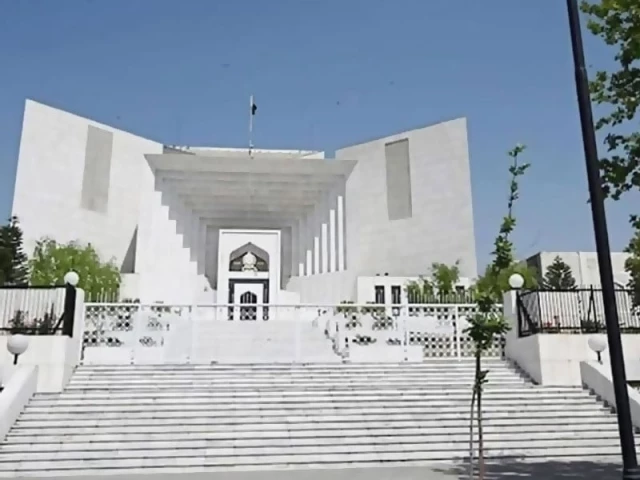Understanding the Developments Surrounding the 26th Constitutional Amendment in Pakistan
In a significant legal development, Islamabad’s Supreme Court has decided to revisit the contentious 26th Constitutional Amendment, which has been at the center of numerous petitions for the past eight months. Scheduled for hearing on October 7, this will involve an eight-member Constitutional Bench composed of esteemed judges, including Justice Aminuddin Khan and Justice Ayesha Malik.
The complex scenario unfolds against a backdrop of intricate judicial politics. The last hearing took place in January, but due to various factors, the case was sidelined until now. Interestingly, since that time, the Judicial Commission of Pakistan has appointed eight new judges, further complicating the dynamics at play.
One of the critical issues surrounding this amendment is the balance of power between the judiciary and the executive. Critics argue that the government has gained undue influence over judicial appointments, which raises concerns about the independence of the judiciary. Notably, the current Chief Justice, Yahya Afridi, has faced hurdles in nominating judges aligned with his vision for the judiciary. This has led to a growing perception that the executive is increasingly shaping judicial outcomes, a possibility that could undermine public trust in the legal system.
As the hearing approaches, many are questioning whether the current bench can impartially review cases involving the amendment. Legal experts are suggesting that a full court may be necessary to ensure fairness and transparency. Former additional attorney general Tariq Mahmood Khokhar encapsulated these concerns, emphasizing that judges with a vested interest should recuse themselves to maintain integrity in legal proceedings.
Moreover, the debate isn’t merely about legalities; it reflects broader societal concerns about democracy and the rule of law in Pakistan. The collaboration between judicial appointments and government interests has intensified worries about judicial autonomy. Lawyers and activists are voicing their discontent, suggesting that this emerging power structure poses a detrimental threat to judicial independence.
In this unfolding saga, it’s vital for citizens to stay informed and engaged. Understanding the implications of these legal changes can influence public discourse and advocacy efforts for a more democratic judiciary. For those wanting to continue this conversation or delve deeper into related topics, consider connecting with Pro21st. Engaging platforms like Pro21st can provide insights and opportunities to contribute positively to these critical conversations shaping Pakistan’s future.
At Pro21st, we believe in sharing updates that matter.
Stay connected for more real conversations, fresh insights, and 21st-century perspectives.





